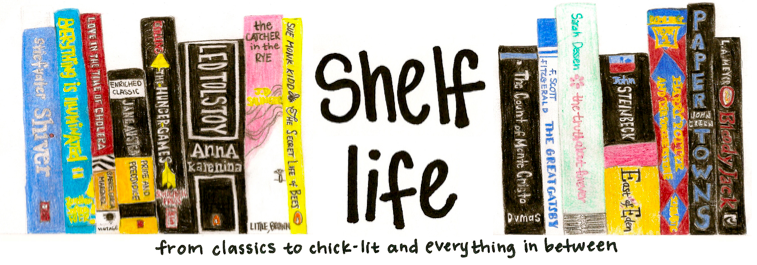By Stephanie Perkins
Ado:
Before I begin, let’s clear the air by acknowledging what we’re all thinking: the title is lamentably lame, the cover affectedly cute, and the whole package insipidly cliché. In a bookstore setting, I probably would have dismissed this as one of countless similar books marketed to pander to the generically sentimental demographic of teenage girls. If it happened to snag my attention as I scanned the shelves, it would probably have been quickly forgotten as I moved to stroke the spines of beloved books that had already proven their worth several times over, who’s only shortcoming was their inability to spontaneously generate new releases in response to my longing.
“So what happened?” you ask. John Green (an author who’s work I avidly enjoy and admire, and whose word and opinion I respect highly) happened, as he’s wont to do. In fact, I had not even heard of this book until John enthusiastically advocated it in a recent vlog post*. John does not recommend books very often; this was clearly not to be taken lightly. I went directly from Youtube to Amazon (without passing Facebook or collecting notifications) and Anna and the French Kiss arrived in my student P.O. box two days later.
Without Further Ado:
If I could rescript my own senior year spent as an expat in Germany, it would probably go a little something like this: Anna is enrolled in the School of America in Paris (SOAP, for short) against her will (?!) because her Nicholas Sparks wannabe of a father thinks she could use some culturing around the edges. Cue The Boy: he’s fluent in French, speaks in a British accent, and has an American passport. Sound too good to be true? It probably is; but that’s what fiction is for – giving us a taste of life’s extremes, the better and the worse than our everyday lives. The book being what it is (and I can’t deny that on the surface, it is exactly what it seems), we know the moment she bumps into him – literally, of course – her first night on campus, that when it comes to Étienne St. Clair, Anna is doomed. But the road to that inevitable end is as charming, intricate, candid, and chic as the streets of Paris.
I have three favorite things about this book. One: the setting. Stephanie never once forgets that she chose to set the novel in Paris. The city is not just a backdrop, it’s a character in itself, intrinsically woven into each scene. She also doesn’t forget the nature of Anna’s presence in Paris. As an expat not speaking a word of French, Anna feels at times alienated both from the foreign city around her as well as the familiar world she left back home, feelings that ring especially true to me, having experienced them myself last year. Two: the realism. One of the ways Stephanie extricates hers story from the stereotype is by not smothering it in the perfection drivel common to so many young adult romances. Not only are the characters not perfect, they’re actively flawed – to the point that it’s their flaws alone, rather than fatalist outside forces, that forestall the Happy Ending. Three: the romance. Of course. But with a unique twist of depth. Anna and the French Kiss is as much a journey of friendship and self-understanding as it is of romance. Even as you’re swooning with Anna and Étienne atop Notre Dame (possibly praying you won’t topple off mid-swoon), picnicking in Père Lachaise cemetery, braving the crypt of the Pantheon, or reveling in springtime in the Luxembourg gardens, you know the romance owes its resonance and sincerity to the friendship founded first.
This is one of those books that so immerses you in its story and its characters and its world that you almost want to commence furious blinking when you’re forced to surface, as if emerging from a movie theater into harsh afternoon sunlight. And then you want to crawl back inside and stay for a while. If you’ve been to Paris, you will be overwhelmed with nostalgia, and if you haven’t, I’m quite sure you’ll long to book the next flight, perhaps settling to console yourself with some frozen pain au chocolat instead.
Concluding Ado:
Here’s where I meet with a dilemma I’ve sort of subconsciously wrestled with throughout my teen years, ever since my reading repertoire began to see recurring appearances by both classic or literarily acclaimed works and popular modern bestsellers. Maybe I’m the only one who struggles with this dichotomy, but I doubt it. How do you reconcile giving both a book like The Shadow of the Wind and Anna and the French Kiss five stars? Ought you to reconcile it? Should Anna be delegated to only three on the grounds of lacking the scope and innovation of Shadow? By what standards ought you to appraise them, anyway? Or should they even be judged based on the same set of standards, given how wildly different they are? I’ve come to a working conclusion that the authors put pen to paper with such different intentions of storytelling in mind that it’s not fair or even constructive to make a direct comparison. But consider this a non-rhetorical question: According to what criteria should literature be measured, and should the standards be universal amongst genres?
* Incidentally, this is pretty much every aspiring author's dream come true (or at least mine), because John Green was an idol of Stephanie's long before she had even begun Anna, and he ended up becoming of fan of hers. Wow. If you're as jealous as I am or just plain interested, she explains the story here at her own blog.
Books Read This Year: 1
Top 100 Status: 38/100


No comments:
Post a Comment